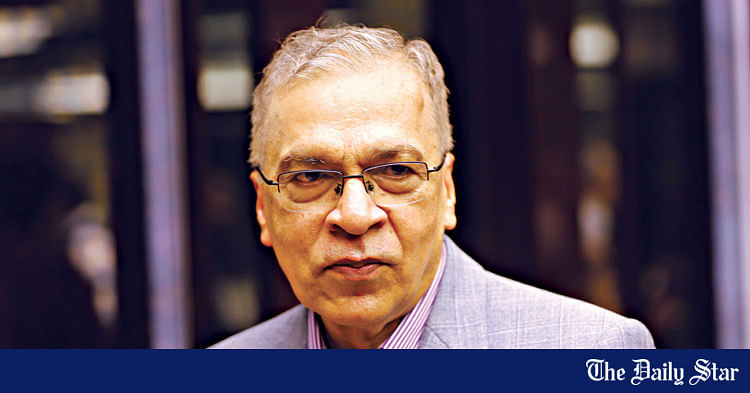Iftekharuzzaman, the executive director of Transparency International Bangladesh and also the head of the anti-corruption reform commission, recently shared with The Daily Star updates on the commission’s activities.
The Daily Star: Tell us about the progress the commission has made so far.
Iftekharuzzaman: We have already talked to various stakeholders, particularly current and former officials of the Anti-Corruption Commission, prosecutors, lawyers and judges involved in anti-corruption activities. We are consulting representatives of the civil society, students, teachers and professionals.
We are trying to understand the challenges first. We sought suggestions from people through different channels — the response is very encouraging. We are hopeful that we will be able to complete our work within the stipulated time and submit our report to the government.
DS: When do you plan to submit the report?
Iftekharuzzaman: The stipulated timeframe is January 7. We must submit the report before that. We are currently working on drafting the recommendations. At the same time, we are gathering suggestions from various sources — a process that will continue until next week.
DS: You have often described the ACC as a “toothless tiger”. What recommendations would you make to change this?
Iftekharuzzaman: We already knew why the ACC is a toothless tiger. It became even clearer while working on the reform commission. We will recommend how to overcome this situation.
We observed that appointments to the ACC’s top positions have been politically influenced from the very beginning.
Subsequent appointments are made through deputation from the bureaucracy, primarily from the administration cadre.
As a result, the ACC’s upper tier remains hostage to politicians and bureaucrats.
The extent of mismanagement, inequality and corruption within the ACC is quite severe. These issues won’t be resolved overnight, but we will propose some strong recommendations to address these issues.
Furthermore, we are scrutinising the weaknesses in the ACC’s laws. When it comes to addressing high-level corruption, particularly money laundering, the ACC alone cannot play an effective role.
Institutions like Bangladesh Financial Intelligence Unit, the National Board of Revenue, the Criminal Investigation Department and the Attorney General’s Office are supposed to collaborate and coordinate efforts. However, this hasn’t been the case. Instead, unhealthy competition has persisted.
DS: All ruling parties have used the ACC as their tool. How do you think you will address this?
Iftekharuzzaman: Corruption on a large scale happens due to the collusion between political parties, bureaucrats and business interests. This collusion must be dismantled.
While the ACC act allows such dismantling, it is not enforced — we will recommend steps to ensure the enforcement. Additionally, we need to ensure not only the ACC’s complete independence but also its accountability and transparency.
Currently, the ACC submits an annual report to the president, which serves as little more than a collection of statistics.
There is no clear explanation of the types of complaints the ACC receives and why some complaints are rejected or why others are accepted. We will address these issues as well.
DS: After the 1990s and again during 2007-08, we saw many reform proposals. How confident are you that your recommendations will be implemented?
Iftekharuzzaman: When we took this responsibility, this was the exact question the entire commission and I had: will our recommendations remain merely paper documents?
If our recommendations lead to the establishment of a legally empowered ACC that adheres to ideal and global standards, then I can be optimistic.
However, for this to happen, positive changes must occur in politics, bureaucracy and business sectors. Without such changes, we cannot achieve an ideal ACC. Even an ideal ACC cannot deliver without changes in political and bureaucratic culture.
That being said, I am hopeful about positive outcomes.
The momentum created by the movement against inequality has provided us with a unique opportunity, which makes me optimistic.
But once again, breaking the collusion among these three sectors is crucial.


